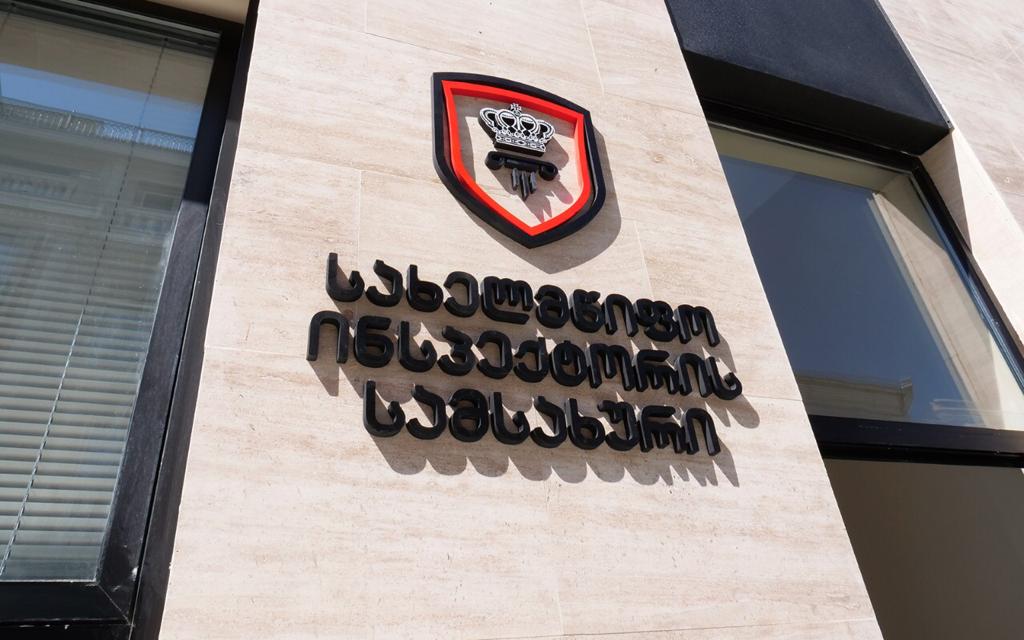Council of Europe Commissioner for Human Rights Dunja Mijatović and several foreign diplomats have expressed their concerns over the legislative proposal dissolving the outspoken State Inspector’s Service, an independent agency monitoring personal data protection and probing abuse of power.
Commissioner Mijatović on December 28 called on the Georgian Parliament to refrain from adopting the draft law “in an expedited manner and without proper consultation with the relevant stakeholders.” She warned that if adopted, the initiative “can only weaken the independent functioning of the national human rights protection mechanisms in Georgia.”
Meanwhile, acting Head of the EU Delegation to Georgia, Asunción Sánchez Ruiz, said on December 28 the Service was “a key institution for a well-functioning democracy and for the protection of human rights” in the country.
While acknowledging there might be room to improve investigative and data protection functions currently vested in the State Inspector’s Service, she stressed that “such changes should be done in an open and transparent process, with a meaningful, broad debate, including civil society and the State Inspector’s Service itself.”
The diplomat also expressed regret that “it has not proved possible for EU representatives to engage with the Parliament on this matter,” considering the 27-member-bloc’s contributions to establishing and developing the Service.
Referring to the bill and another controversial draft law sanctioning justices over ‘unbalanced’ opinions, she highlighted that the “trust in and independence of key state institutions are essential for democracy and human rights, and integral to the proper implementation of the EU-Georgia Association Agreement and to advancing Georgia’s European aspirations.”
Ambassadors of France, the Czech Republic, the Netherlands, Sweden and Norway, meanwhile took to Twitter to voice their concerns over the rushed bill to dismantle the State Inspector’s Service and dismiss all of its employees.
French Ambassador Diégo Colas shared the concerns over the hasty reform on December 28, stressing that when dealing with key democratic checks and balances, “we call for reforms to take place carefully, with wide consultations, with appropriate transitions, avoiding chilling effect on incumbents.”
Czech envoy Petr Mikyska said on December 27 that “the circumstances of planned abolition of State Inspector’s Service, dismissal of all employees and timing of this rushed action are worrisome.”
Ambassador of the Netherlands, Maaike van Koldam and Swedish Envoy Ulrik Tideström both underscored the importance of transparency and broad consultations on such proposals, in their own respective tweets.
Ambassador of Norway Helene Sand Andresen also requested the Georgian Parliament to take an “inclusive and considered approach.” She underscored that the Inspector’s Service should be instead empowered to fill its role as an independent Human Rights institution – “an asset for Georgian democracy.”
Previously, U.S. Envoy to Georgia Kelly Degnan and the United Nations Office of the High Commissioner for Human Rights have also expressed their concerns.
On December 24, it came to light, via media reports, that the ruling Georgian Dream lawmakers had drafted a bill dissolving the State Inspector’s Service into two new separate bodies tasked with probing abuse of power by law enforcement and monitoring data privacy.
The GD MPs kick-started, on December 27, an expedited review process of the draft law, which has been heavily criticized by the opposition, civil society, President Salome Zurabishvili, Public Defender, and State Inspector Londa Toloraia herself, as well as Georgia’s international partners.
The proposal comes as the Service has remained critical over the GD government’s handling of jailed ex-President Mikheil Saakashvili, finding the Justice Ministry and the Special Penitentiary Service violated Georgia’s data protection legislation by airing several controversial footages of Saakashvili.
The Inspector is currently still probing possible inhuman treatment of jailed Saakashvili during his forced transfer in November from the Rustavi prison to the Gldani penitentiary clinic.
Read Also:
- GD Aims to Dissolve Outspoken State Inspector’s Service
- U.S. ‘Strongly Requests’ GD to Pause Bill Dissolving State Inspector
This post is also available in: ქართული (Georgian) Русский (Russian)

